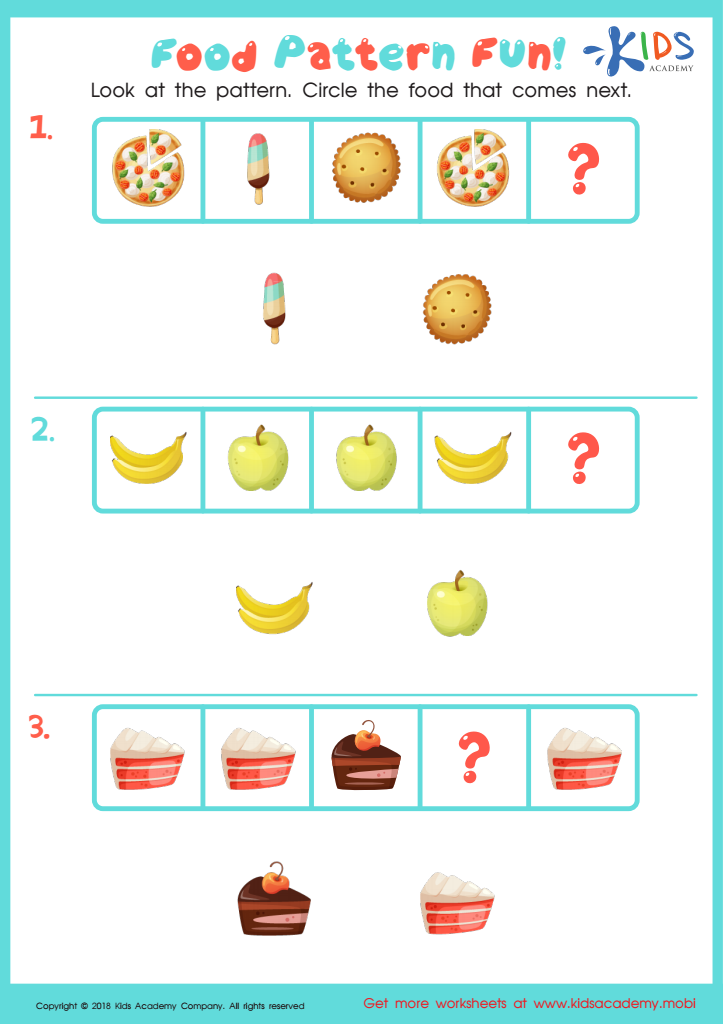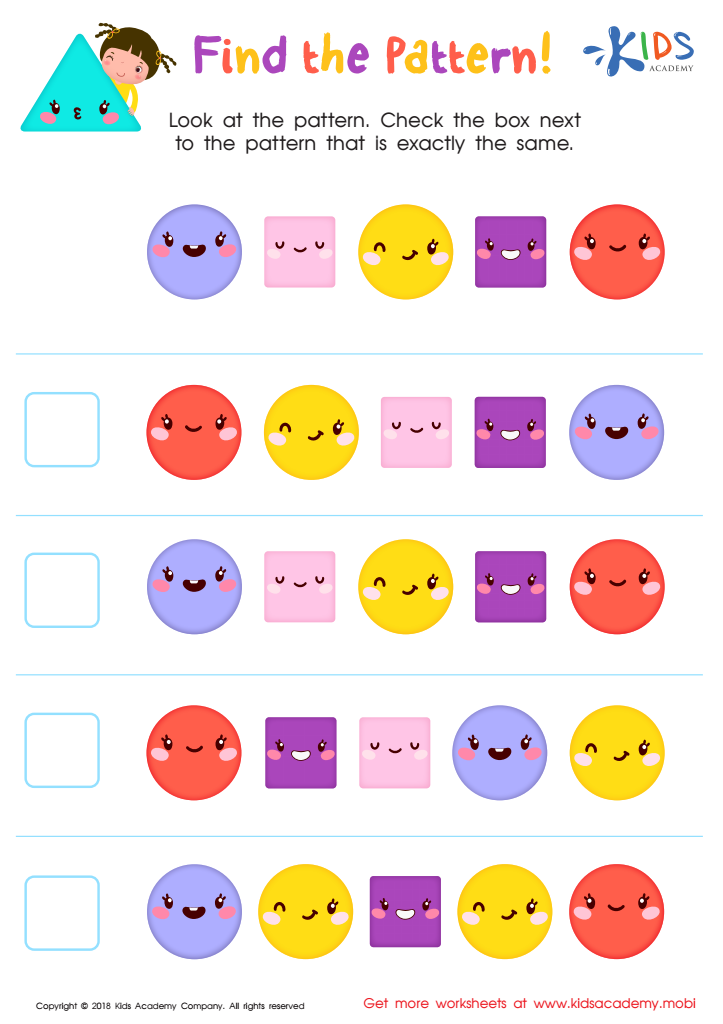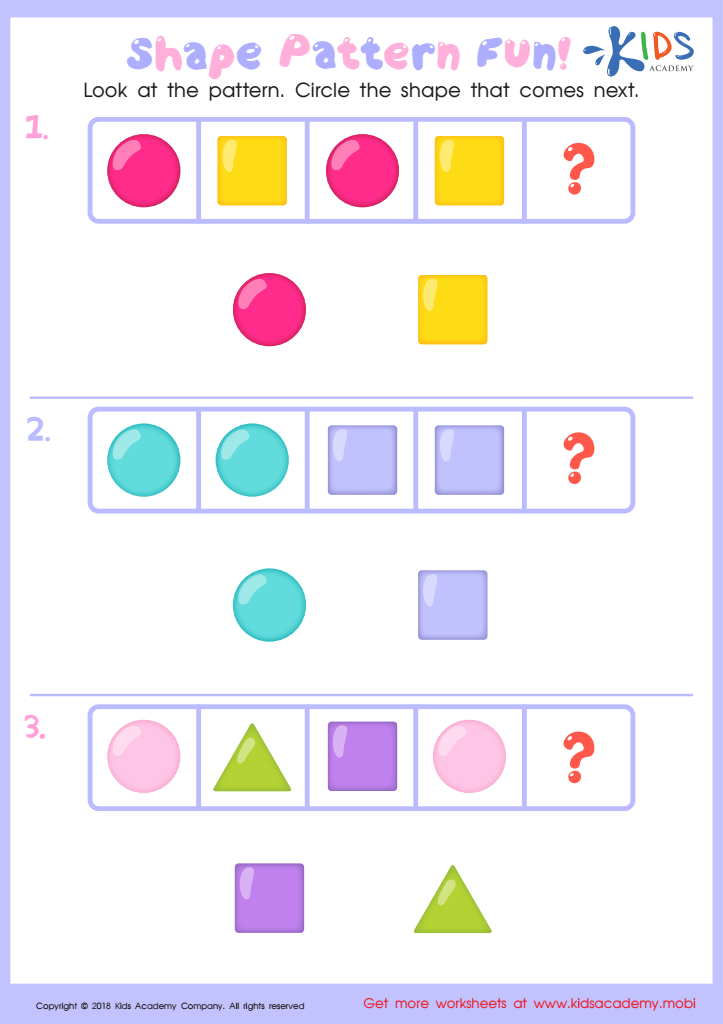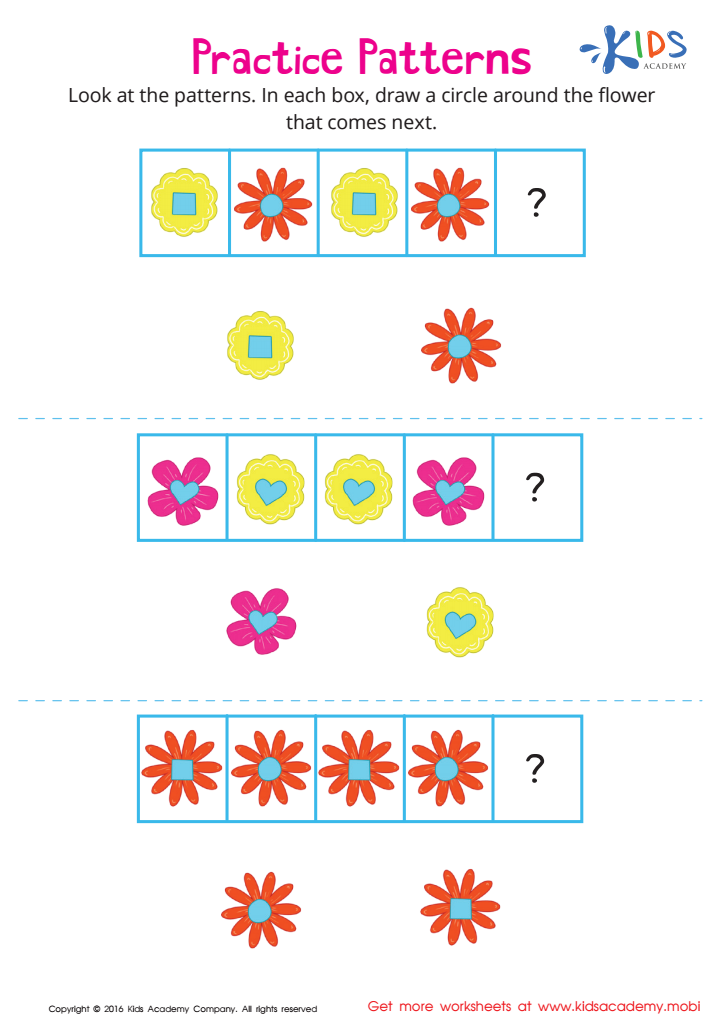Pattern recognition Normal Matching Worksheets for Ages 4-5
6 filtered results
-
From - To
Discover our engaging Pattern Recognition Normal Matching Worksheets designed specifically for children aged 4-5! These fun resources help young learners develop vital skills through colorful visuals and interactive activities. By identifying and matching patterns, children enhance their cognitive abilities, critical thinking, and attention to detail. Our worksheets provide a variety of exciting exercises that keep kids motivated while learning. Ideal for parents and educators, these printables seamlessly fit into homeschooling or classroom settings. Foster essential early math skills and prepare your little ones for future academic success with our user-friendly Pattern Recognition Matching Worksheets! Start exploring today and watch their confidence grow!


Food Pattern Fun Worksheet


Find the Pattern Worksheet


Make the Same Pattern Worksheet


Logic Game Sorting Worksheet


Shape Pattern Fun Worksheet
Pattern recognition and normal matching are crucial cognitive skills in early childhood development, particularly for children aged 4-5. During this stage, children begin to understand relationships and make connections between different concepts, which is foundational for their overall learning journey. These skills help them identify similarities and differences, enabling them to categorize and organize information effectively.
For parents and teachers, fostering pattern recognition in young children lays the groundwork for future mathematical skills. Learning to recognize patterns enhances critical thinking, problem-solving abilities, and encourages logical reasoning, which are essential in subjects like math and science. Moreover, these skills support language acquisition as children learn to recognize structures in both spoken and written language.
Engaging children in activities that promote pattern recognition—such as matching games, sorting exercises, and interactive play—can enhance their attention spans and boost memory. Furthermore, the sense of accomplishment gained from recognizing patterns in their environment fosters confidence and resilience.
By giving emphasis to pattern recognition and normal matching during these formative years, parents and teachers set the stage for lifelong learning, encouraging curiosity and an active engagement with the world around them. Ultimately, nurturing these skills will support children's academic and personal growth in the future.
 Assign to My Students
Assign to My Students
















